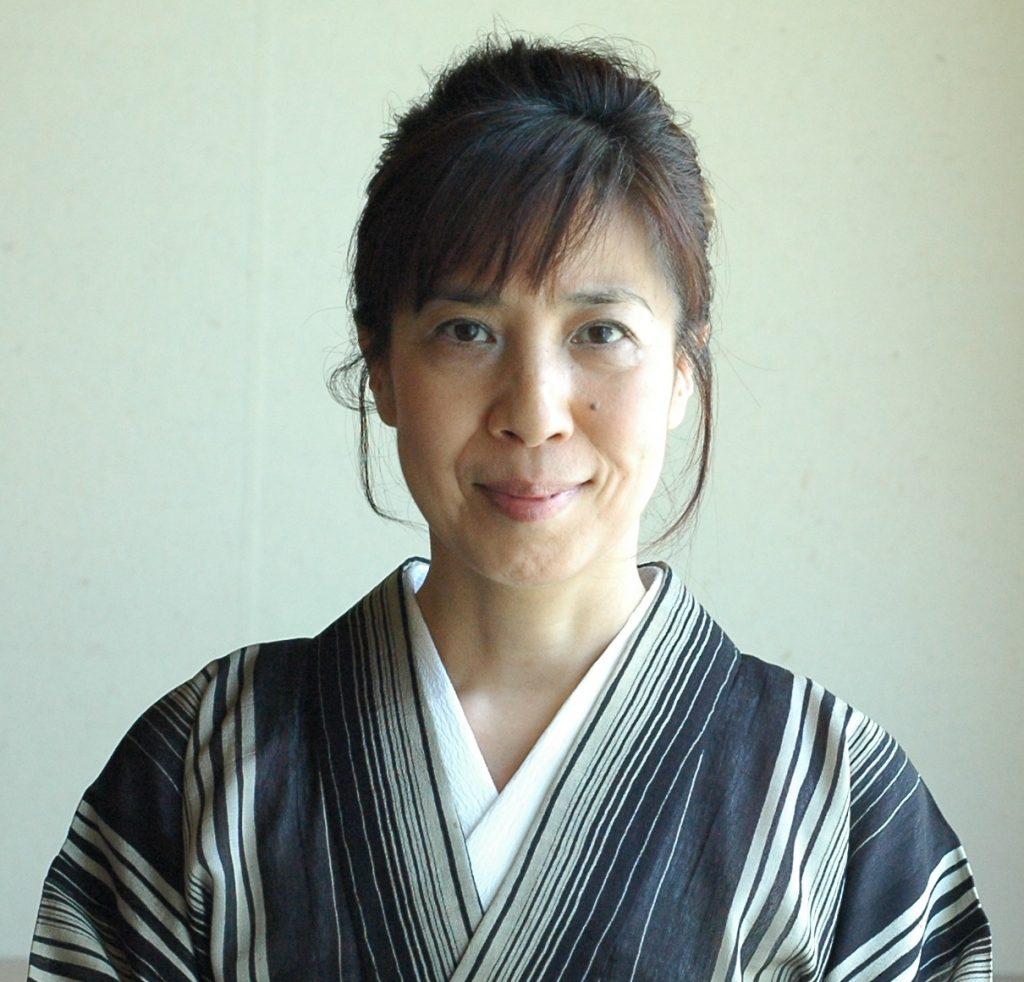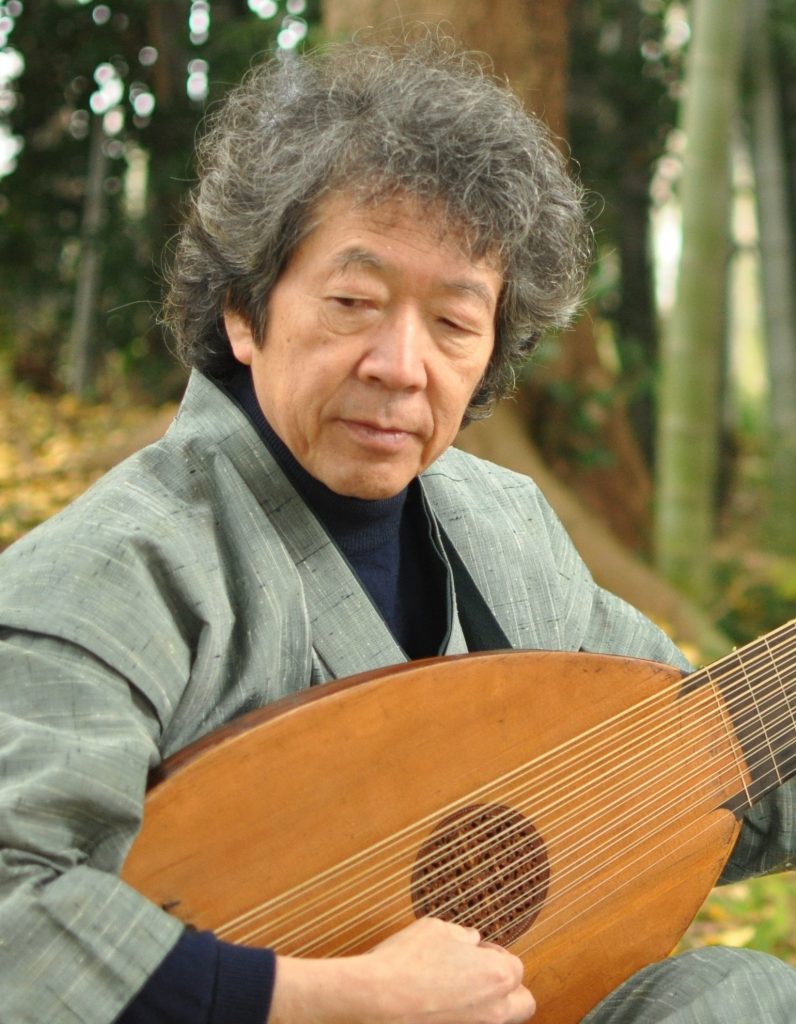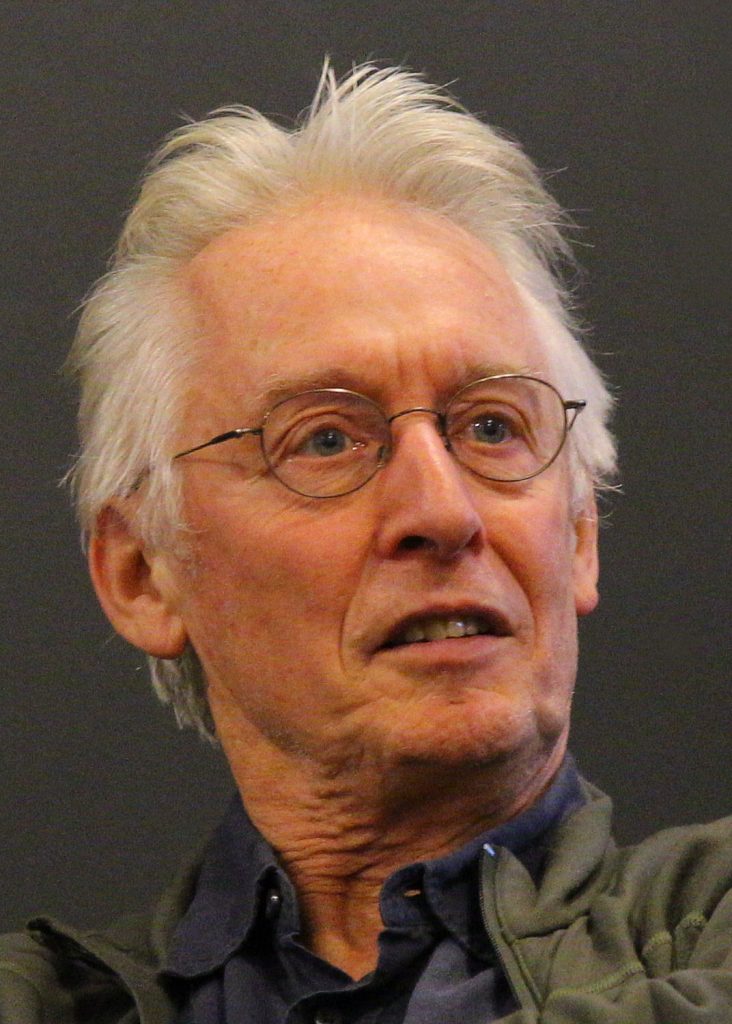Wednesday, September 26, 7 p.m.
St.Nicholas’ Church
Chiyomi Yamada, voice
Toyohiko Satoh, lute
Walter van Hauwe, recorders
Programme:
17th Century Duch Music and Works of Toyohiko Satoh
Corrnelis Thymanszoon Padbrué
Aen Roosemonds oogen
Nicholas Vallet
La Mendiante Fantasye
Jan Pieterszoon Sweelinck
Garrula Rondinella
Constantijn Huygens
Morte dolce / Pathodia Sacra et Profana
Johann Schop
Pavaen Lachrimae
Toyohiko Satoh
Aka to bai, New Years song from Nagasaki (2013)
Nen-ne Koroichi, Lullaby from the Nara district (2012)
Zuizui Zukkorobasi, nursery rhyme from the Tokyo district (2013)
Nen-nyako korochako, lullaby from the Akita district (2012)
Fuki no kyoku, Japanese traditional tune (1982)
Sendo no yanma, lullaby from tha Yamagata district (2007)
Antagata dokosa, Children song from the Kumamoto district (2012)
Yokai, old tune from Tanegashima (2009)
Kochae bushi, Edo Minyo (2008)
About the performer:
 Chiyomi Yamada was born in 1956 in Fukuoka, Japan. After her graduation from Music College in Tokyo she went to The Netherlands to study Baroque music at the Royal Conservatory of The Hague with Marius van Altena and Dr. Rebecca Stewart. Soon she became a member of the Renaissance cappellae of Dr. Stewart and began to give concerts. This early experience has continued to be influential in shaping Miss Yamada’s ideas about Renaissance polyphony and Gregorian chant. In addition she became the vocalist of Alba Musica Kyo directed by Toyohiko Satoh. With this group she performed in festivals in The Netherlands, Belgium, Hungary, Spain, Portugal, Italy and Canada. Her particular combination of musicality, intelligence, vocal clarity and delicacy continued to please her various audiences and ensured her acceptance within the world of early music. Her CD’s include the following: Two Orphean Masters (Dowland and Purcell), Music in Dejima, Love and Musical Drama (early Italian Baroque music), Works of Toyohiko Satoh (I and II), Landini & his time, Machaut & his time, Music of Shakespeare, Dawn to the West (Japanese songs) . Since 2002 Miss Yamada has been living in Japan, where she has been developing a new project on the shared Japanese-European cultural history.
Chiyomi Yamada was born in 1956 in Fukuoka, Japan. After her graduation from Music College in Tokyo she went to The Netherlands to study Baroque music at the Royal Conservatory of The Hague with Marius van Altena and Dr. Rebecca Stewart. Soon she became a member of the Renaissance cappellae of Dr. Stewart and began to give concerts. This early experience has continued to be influential in shaping Miss Yamada’s ideas about Renaissance polyphony and Gregorian chant. In addition she became the vocalist of Alba Musica Kyo directed by Toyohiko Satoh. With this group she performed in festivals in The Netherlands, Belgium, Hungary, Spain, Portugal, Italy and Canada. Her particular combination of musicality, intelligence, vocal clarity and delicacy continued to please her various audiences and ensured her acceptance within the world of early music. Her CD’s include the following: Two Orphean Masters (Dowland and Purcell), Music in Dejima, Love and Musical Drama (early Italian Baroque music), Works of Toyohiko Satoh (I and II), Landini & his time, Machaut & his time, Music of Shakespeare, Dawn to the West (Japanese songs) . Since 2002 Miss Yamada has been living in Japan, where she has been developing a new project on the shared Japanese-European cultural history.
 Toyohiko Satoh was born in 1943 in Japan. After his study in Tokyo, in 1968 he came to Europe to study the lute at the Schola Cantorum Basiliensis in Basel, Switzerland. Since 1970 when he made the world first baroque lute recording in Swittzerland, he has recorded extensively for Telefunken, Philips, Channel Classics and Carpe Diem labels. Many of them won prizes. Not only his solo recordings but also innumerable ensemble recordings with other world famous musicians brought consistent honours and awards. His formal debut in the Carnegie Recital Hall in 1982 made a profound sensation in The New York Times. He performed in many festivals around the world. From 1973 through 2004 he was the lute professor at the Royal Conservatory of Den Haag, Holland, and produced many prominent students for all over the world. He also frequently gives masterclasses in various countries. Since 1981 he is also active as a composer. He has performed his compositions in several Festivals. In 2000 he became the president of LGS-Japan (Lute & Early Guitar Society of Japan) . He lives permanently in Japan since 2014, and became also a master of Japanese Tea Ceremony, and studied Noh Play. He tries to harmonize traditional Japanese philosophy with the Western music.
Toyohiko Satoh was born in 1943 in Japan. After his study in Tokyo, in 1968 he came to Europe to study the lute at the Schola Cantorum Basiliensis in Basel, Switzerland. Since 1970 when he made the world first baroque lute recording in Swittzerland, he has recorded extensively for Telefunken, Philips, Channel Classics and Carpe Diem labels. Many of them won prizes. Not only his solo recordings but also innumerable ensemble recordings with other world famous musicians brought consistent honours and awards. His formal debut in the Carnegie Recital Hall in 1982 made a profound sensation in The New York Times. He performed in many festivals around the world. From 1973 through 2004 he was the lute professor at the Royal Conservatory of Den Haag, Holland, and produced many prominent students for all over the world. He also frequently gives masterclasses in various countries. Since 1981 he is also active as a composer. He has performed his compositions in several Festivals. In 2000 he became the president of LGS-Japan (Lute & Early Guitar Society of Japan) . He lives permanently in Japan since 2014, and became also a master of Japanese Tea Ceremony, and studied Noh Play. He tries to harmonize traditional Japanese philosophy with the Western music.
 Walter van Hauwe has shown his long relation with the traditional recorder-literature not only as a soloist but also as a member of the ensembles Quadro Hotteterre (1969), together with a.o. Kees Boeke (recorder), and Little Consort (1979) ), together with o.a. Toyohiko Satoh (lute). He played the recorder as well as the flauto traverso in many performances and recordings with a.o. Nicolaus Harnoncourt, Gustav Leonardt and Frans Brüggen. In 1971 he was co-founder, together with Frans Brüggen and Kees Boeke, of the controversial, experimental blockflute-ensemble Sour Cream. The discoveries made here on recorder-techniques and interpretation of a great variety of music styles, covering a period of more than 6 centuries, were written down by Van Hauwe in a three-volume professional method: The Modern Recorder Player, edited with Schott London and translated in several languages. His affinity with contemporary literature has only grown over the years and he inspired many composers, as Franco Donatoni and Isang Yun, and many others to write for the blockflute.
Walter van Hauwe has shown his long relation with the traditional recorder-literature not only as a soloist but also as a member of the ensembles Quadro Hotteterre (1969), together with a.o. Kees Boeke (recorder), and Little Consort (1979) ), together with o.a. Toyohiko Satoh (lute). He played the recorder as well as the flauto traverso in many performances and recordings with a.o. Nicolaus Harnoncourt, Gustav Leonardt and Frans Brüggen. In 1971 he was co-founder, together with Frans Brüggen and Kees Boeke, of the controversial, experimental blockflute-ensemble Sour Cream. The discoveries made here on recorder-techniques and interpretation of a great variety of music styles, covering a period of more than 6 centuries, were written down by Van Hauwe in a three-volume professional method: The Modern Recorder Player, edited with Schott London and translated in several languages. His affinity with contemporary literature has only grown over the years and he inspired many composers, as Franco Donatoni and Isang Yun, and many others to write for the blockflute.
As a teacher Walter van Hauwe is since 1971 working at the Conservatory of Amsterdam, where he developed a quiet controversial education system, which attracted many students from all over the world to complete their recorder study in Amsterdam. From 2006 till his retirement in 2013 he served the Conservatorium van Amsterdam as Head of Education Development. Since 1988 Van Hauwe works on a the very detailed ‘Catalogue of Contemporary Blockflute Music’ as well as the ‘Catalogue of Historical Recorder Repertoire, all together listing over 9000 titles, from the 16th Cent. up till the present. In 2002 Van Hauwe received the prestigious Dutch Prins Bernard Music Award for his complete oeuvre.


